They studied medicine, and suddenly COVID too
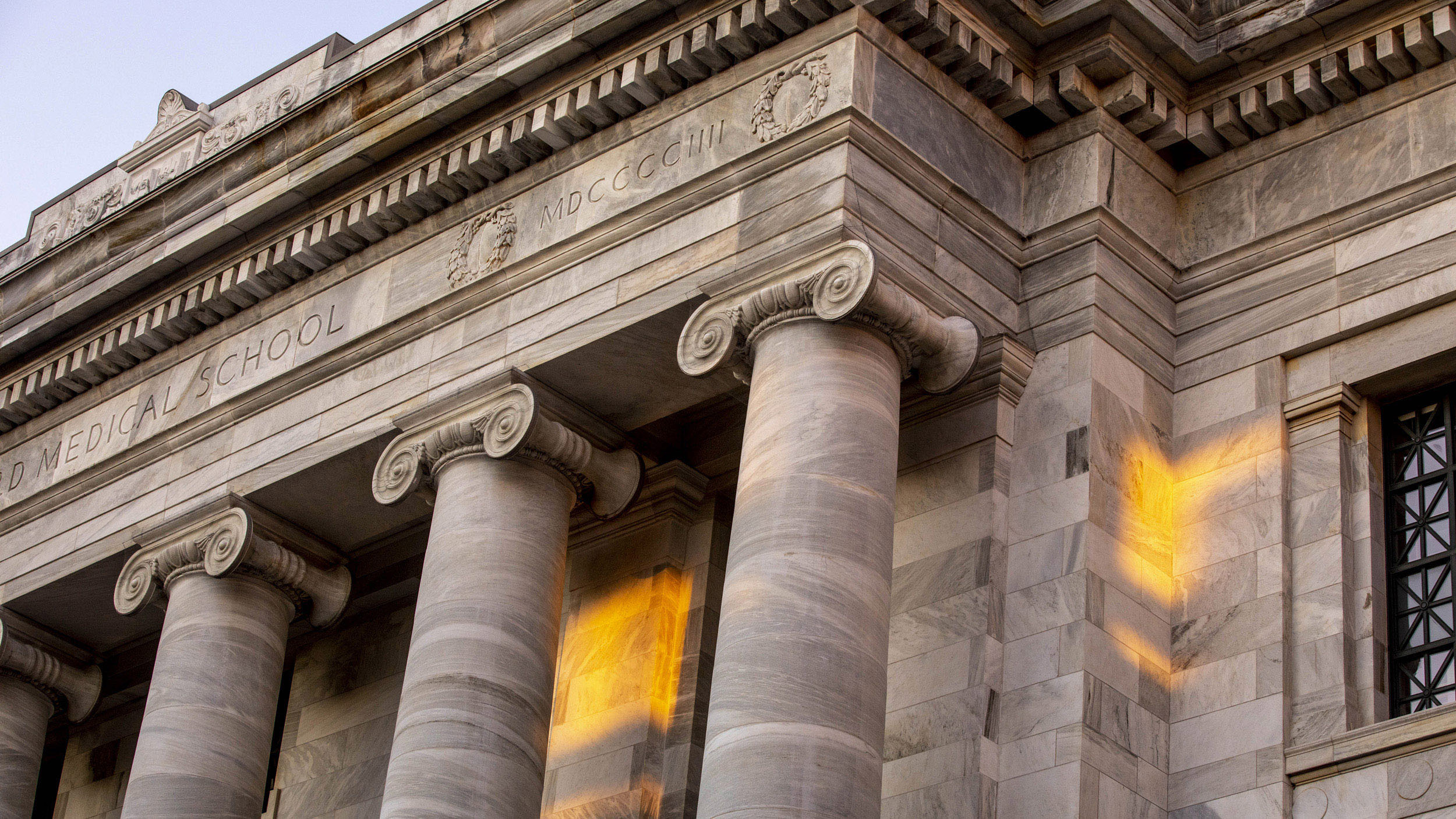
Photos by Rose Lincoln/Harvard Staff Photographer
Students describe the challenges and treasures of navigating classes and the pandemic
Students entering Harvard Medical School expect a rigorous learning experience. For upperclassmen working rotations in area hospitals, the COVID-19 pandemic has taken this rigor to a new level, and the experience has only emboldened their commitment to medicine. Seeing the unequal effects of the pandemic firsthand propelled some to work toward change. Many said they are grateful and feeling reflective. Below are the stories of a handful of students who have weathered a year like no other.
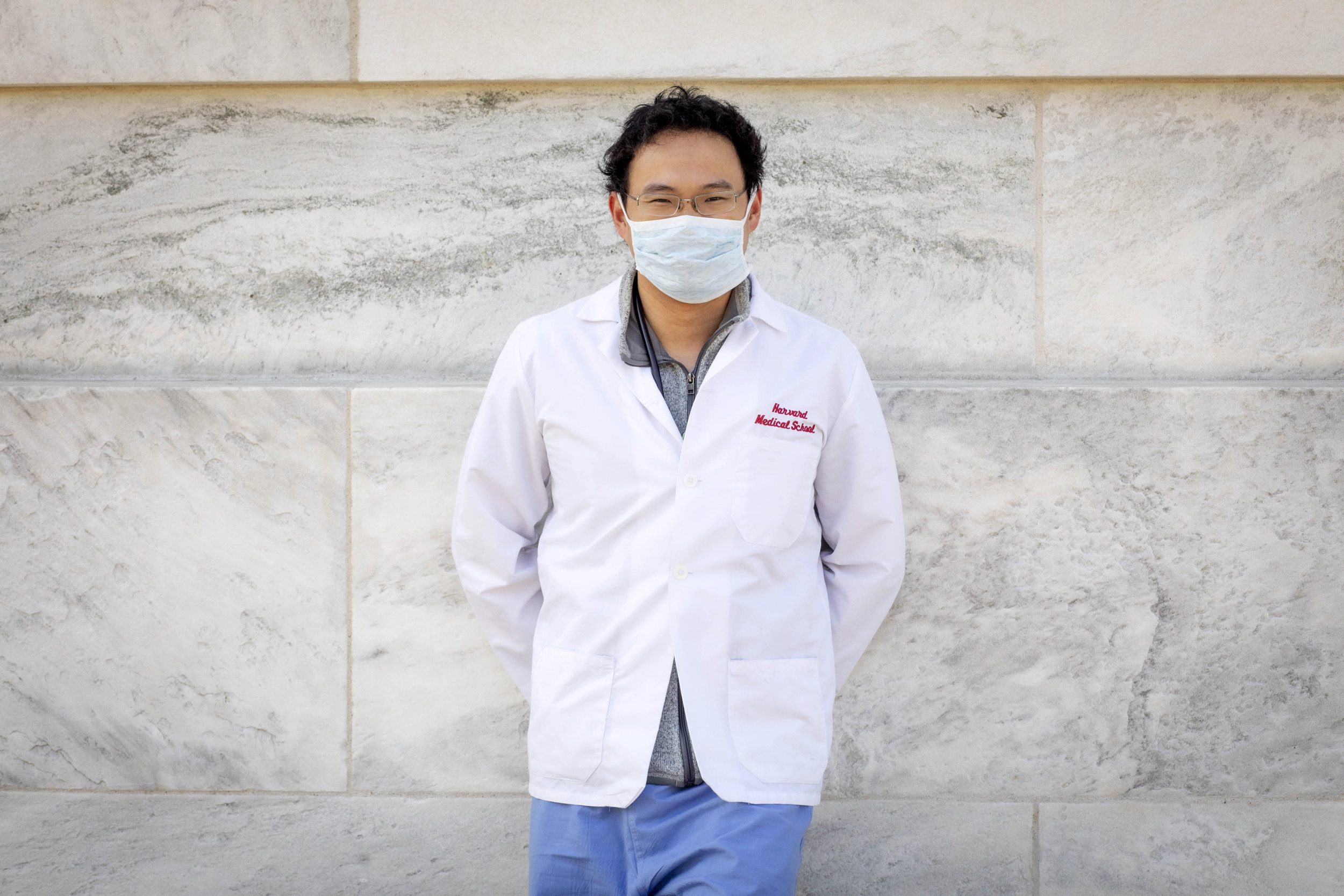
Fang Cao
It has nearly been a year since the pandemic started, and the challenges of COVID have reaffirmed my commitment to becoming a physician scientist. Amid the uncertainties of the new virus, I was amazed by how quickly scientists researched to accelerate vaccine development. Quickly the discoveries in the laboratory became tangible solutions that are both safe and effective. Watching the pandemic unfold coupled with a background of a Ph.D. in cardiovascular medicine reaffirmed what brought me into medicine: using my clinical training to guide research that will have real-life implications for my patients.
Now, I am lucky to be vaccinated as a front-line health care worker caring for patients at BIDMC. While it is difficult to witness patients suffering during a pandemic, I am warmed by the extra mile physicians and nurses go. Whether it is staying up late to update worried family members or ensuring patients have an iPad to speak to their loved ones, I am constantly reminded of kindness and hope. At the same time, I feel privileged to be able to listen to patients’ stories and with the trust they place in me. While the knowledge of medicine is infinite, there is just as much to be learned from my team members, colleagues, and patients themselves.

Sarah Ahmed
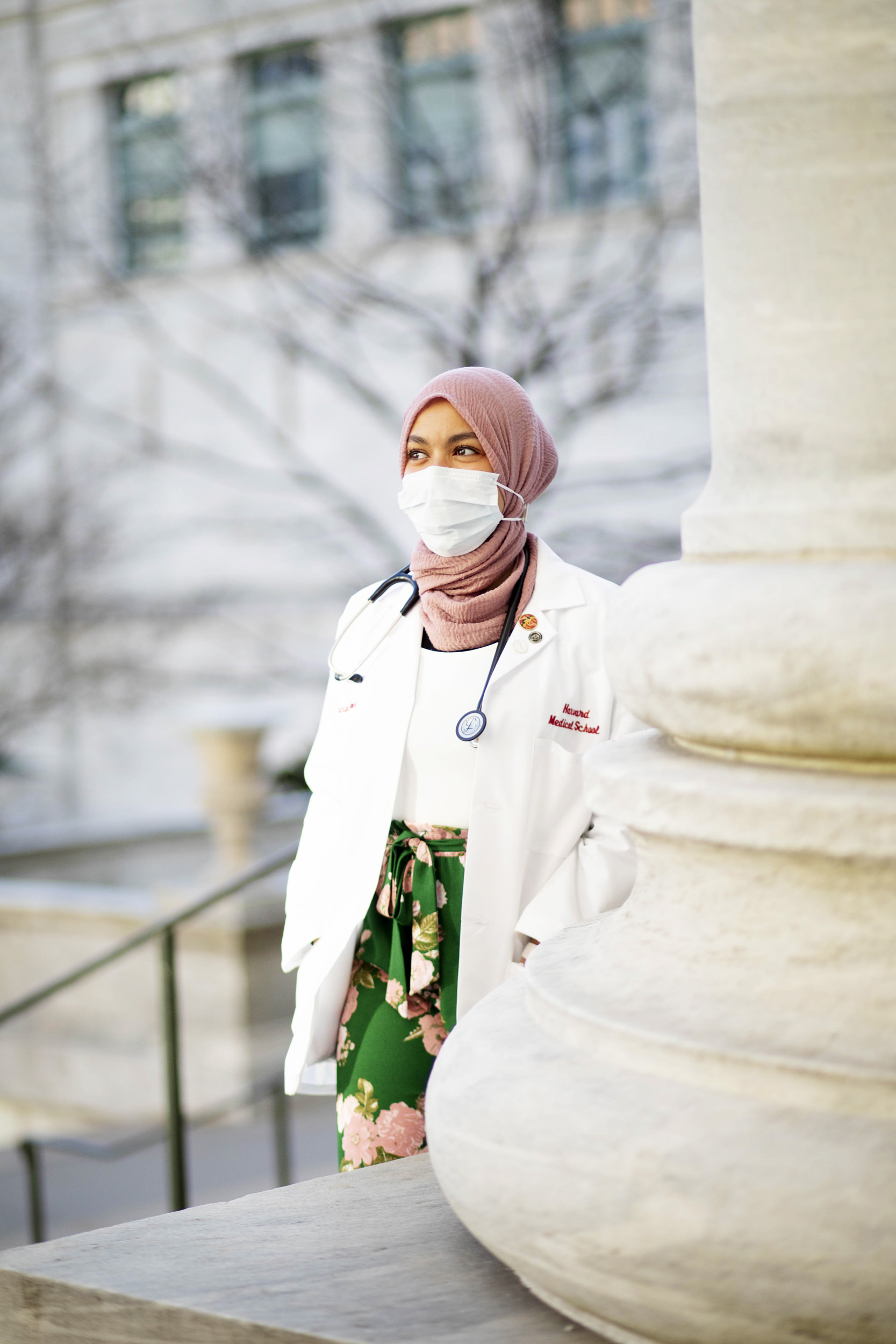
Never before has the importance of medicine and proper medical education and training come to impact livelihood as explicitly and blatantly as it does now. The pandemic has continued to fuel my pursuit of medicine while simultaneously begging the question of how to navigate as a medical professional within an inequitable system. Being born and raised in the Boston area, I was excited to join HMS and work to serve my local community. As the threat of COVID continued to spread, and medical schools sent their students home, I found myself seeking further involvement as a means of coping with the stress and unknown. I volunteered with a food pantry that distributed fresh produce and prepared meals to local neighbors, helped administer COVID vaccines at various vaccination sites throughout Greater Boston, and enrolled in a mental health first aid course that aims to link people experiencing different challenges with the appropriate professional support.
Working through my primary clerkship experience, I have come to appreciate the importance of maintaining an active relationship with the local community, in order to be readily available during the most desperate of times. The pandemic highlighted the need for health care professionals to continue working toward building trust amongst their neighbors. As a medical student, I benefitted from my status, being informed on all the latest developments of understanding the SARS-CoV-2 virus, while keeping my family and friends informed. I joined the COVID-19 Health Literacy Project to help disseminate the most pertinent and latest information regarding this novel virus but recognize that the health care system has much to do to catch up. Despite the limitations presented by COVID-19, I aspire to continue contributing to the facilitation of medical care access and education under the guidance and training of my committed and encouraging colleagues and mentors.

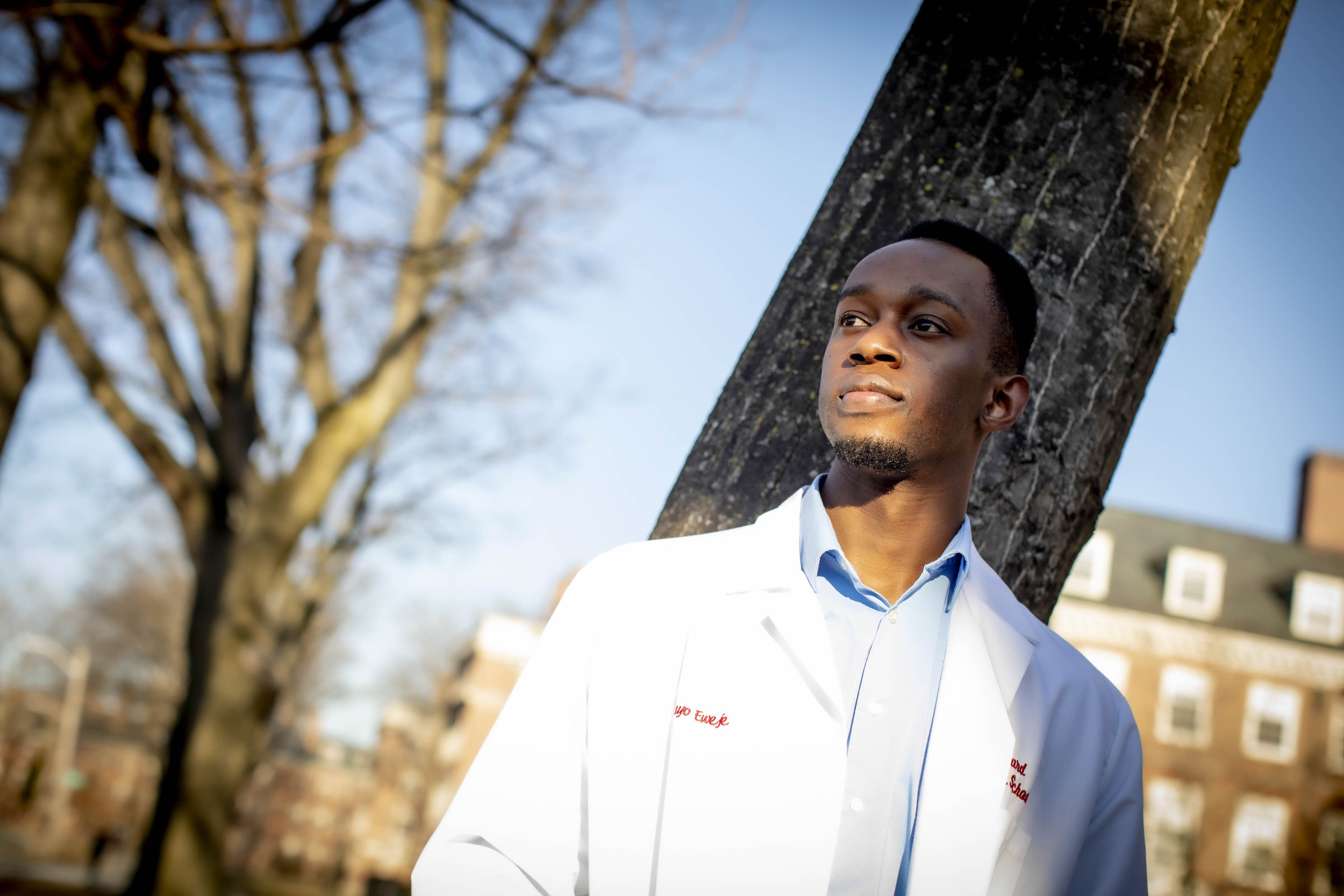
Feyisayo Eweje
Being Nigerian American, I felt called to action as I saw the pandemic further expose challenges that exist in the Nigerian healthcare system and in many African countries. A couple of months after the shutdown, I came together with a few friends who felt similarly to participate in a hackathon focused on aiding the COVID-19 response in Africa. The idea we had that weekend has since grown into a nonprofit seeking to empower community health workers in remote areas with improved information access to facilitate their care delivery, during the pandemic and beyond. As I move forward in my training, this experience motivates me to keep thinking about ways I can contribute toward diminishing the negative impact of health inequities, both here and abroad.
I feel incredibly fortunate to be vaccinated, and I feel responsible to continue doing my part to eradicate the virus. The first patient I ever saw in clinic while wearing my white coat was a Black woman who asked my team why she should get vaccinated, with concerns about potential risks. That conversation brought together multiple aspects of my identity — as a Black man, as a medical trainee, and as a scientist. There’s never been a time in my life in which science and medicine have been more in the forefront or in which science communication has felt more important. As someone who also has research interests in drug delivery and nanoparticles, watching the vaccine saga unfold has been amazing on multiple levels. I’m hopeful that vaccinations will be our ticket back to normal.

Sanjana Srinivasan
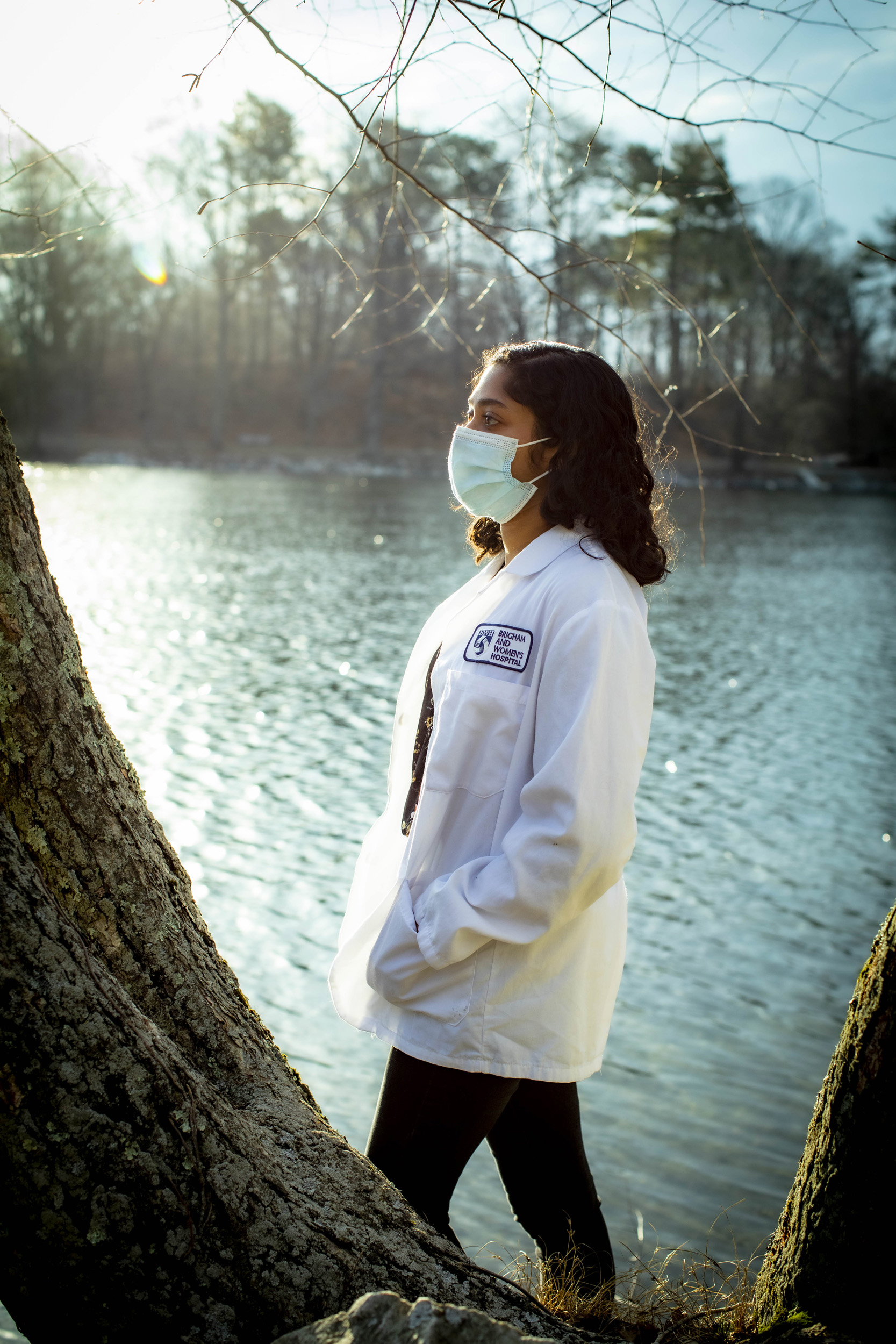
Before the pandemic, all of us in our Medical School class took classes together and saw each other every day. I’d run into people, and we’d make spontaneous plans. But all that changed when our classes went virtual, and I went back home. I definitely felt isolated and away from everyone, but I became more intentional about maintaining relationships with my classmates. I scheduled FaceTime calls to stay connected and feel less isolated. Now that I’m back in Boston and in the hospital, I’ve tried to maintain that intentional effort in my connections with people. During the pandemic, a lot of patients are alone in the hospital without their loved ones by their side. My sister had surgery during the pandemic, and my family and I weren’t allowed in the hospital to be there with her. I was so anxious during that time, and I remember that feeling every time I call patients’ families to update them. I can’t just walk into patients’ rooms to update their families or turn to family members while talking to patients to get more information like I could before the pandemic’s restrictions. I have to be intentional about updating them, keeping them in the loop, and talking to them to get a better sense of who the patients I am caring for are. I hope that mindful effort is something I can carry with me through the rest of my training and my career.![]()
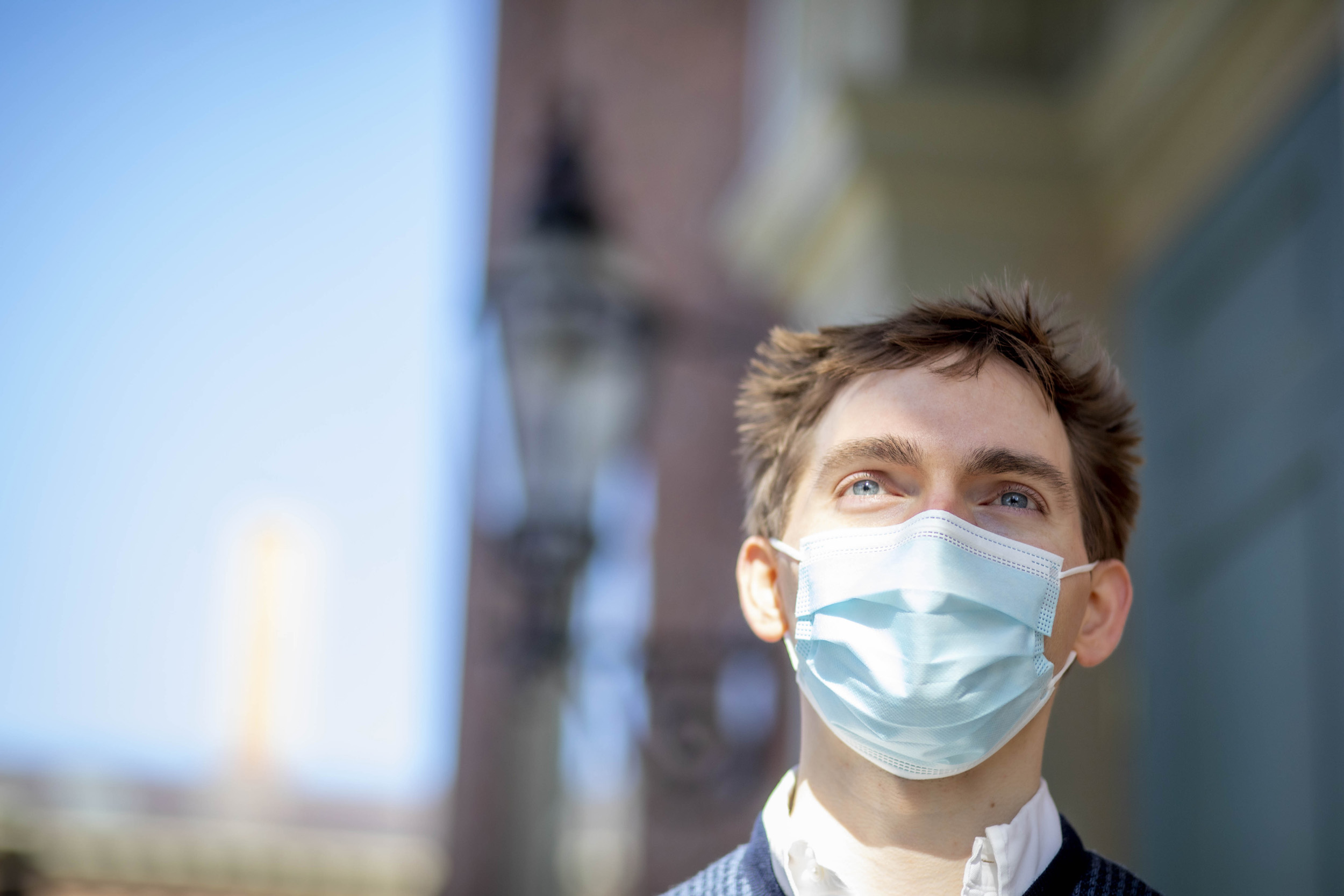
Grant Schleifer
I was rotating through obstetrics and gynecology on the eve of COVID-19. We were nervously asking patients to reduce their prenatal clinic visits in order to socially distance. Amid the frenzy of changes in the hospital, new parents on the labor and delivery floor faced stiff visitor restrictions. The physical separation necessary to prevent infections came at the unwelcome price of isolating ourselves and our patients.
After medical students were sent home, I was thankful to continue seeing patients through virtual visits with my instructors. I saw the effects of isolation in our patients while myself feeling cloistered in my home. Many patients were scared to leave their homes to exercise, visit the doctor, or take care of themselves in other ways. I empathized with them, feeling these same effects myself.
Restlessly waiting out of the hospital during the initial months of COVID-19 gave me a new appreciation for the privilege of sitting at the bedside and being physically present with patients. In the age of Zoom, I am more conscious of the value of being face to face. As I transition to a full-fledged doctor, I am heartened to be in a profession that brings people physically together to care for one another even in the most uncertain times.
![]()
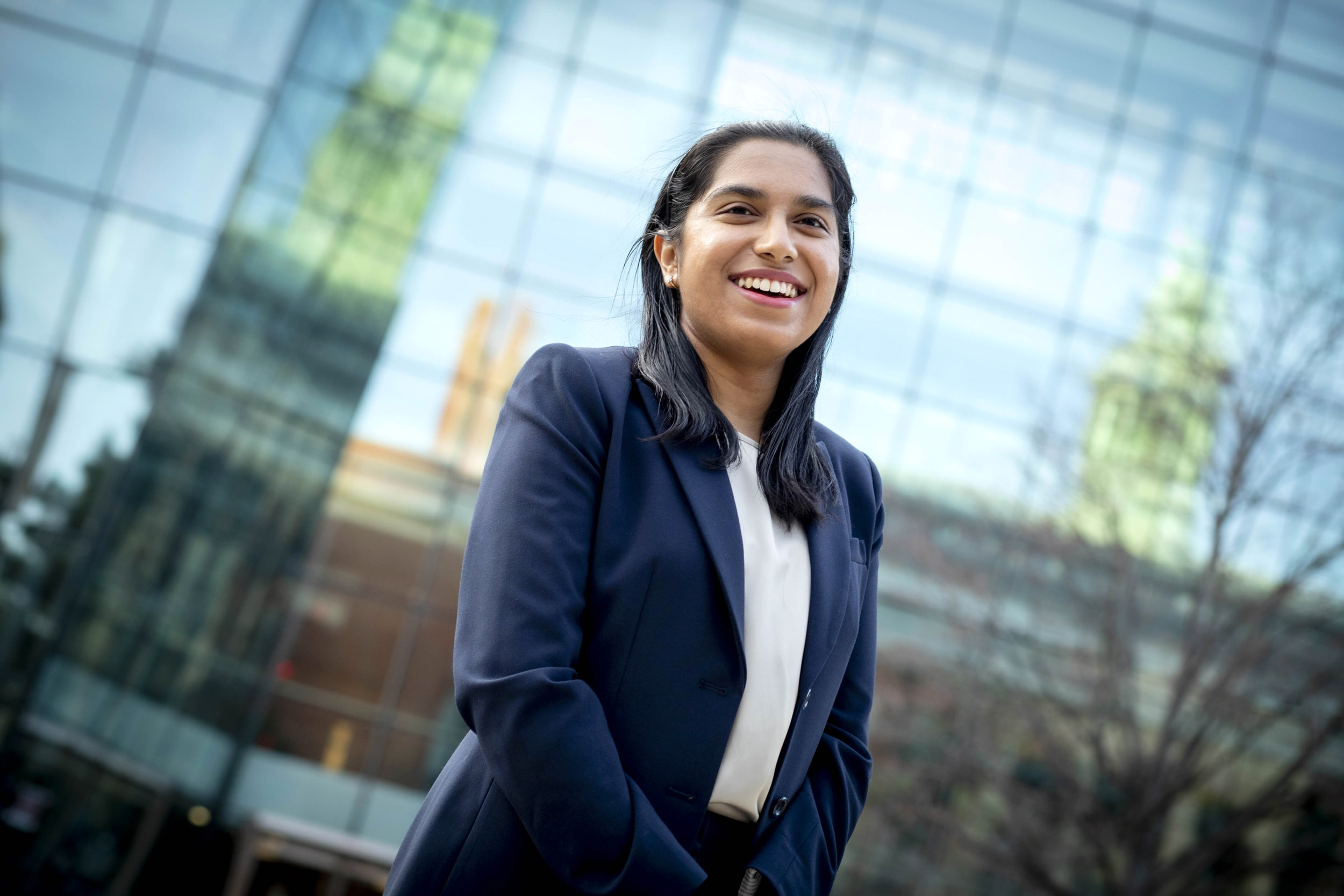
Pooja Chandrashekar
The pandemic was a wake-up call about the impact of health inequity in this country. My research and writing is focused on health disparities, but seeing COVID-19 ravage our most vulnerable communities catalyzed my desire to look beyond the data and do more. We know that disparities exist, but how are we actually working to address them?
For me, the opportunity to “do more” came last March, when I learned of the challenges that non-English-speaking patients were facing in navigating the pandemic. So I started the COVID-19 Health Literacy Project to create and translate COVID-19 information into more than 40 languages to help non-English speakers stay informed and healthy. I mobilized a team of 175 students in health professions, partnered with clinical and advocacy organizations, and distributed our materials to patients and clinicians in over 150 countries. It was incredible to see our work have such far-reaching impact and it solidified my commitment to dedicate my career toward building a more equitable healthcare system.
For most of us, the pandemic was a turning point. It forced us to slow down and reflect on our lives and priorities. But it’s also a chance to reject the status quo and usher in real, long-lasting change. It’s a chance to ask: How am I going to do more?
Interviews were lightly edited for space and clarity.




